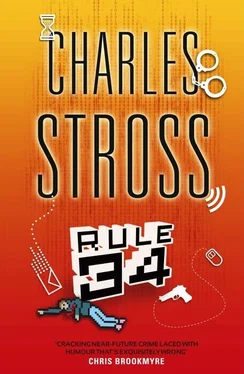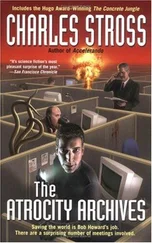You have plenty of time for a long comfortable lie in the bath followed by a TV dinner. You plant yourself on the sofa under your tablet, surfing the web while the vacuum sniffs and nudges around the corners of the living-room carpet, as the evening grows old along with your thoughts. Which, as usual, are increasingly bored and lonely. Burn-out is such an ugly turn of phrase, and in any case, it doesn’t quite fit; it’s more like you ran out of fuel halfway across the ocean, and you’re gliding now, the site of your crash landing approaching implacably but still hidden from you by the horizon of your retirement. That’s you in a nutshell, drifting slowly down towards lonely old age, the fires of ambition having flamed out years ago.
There was a time when, after working hours, you’d be off to the gym or auditing a distance-learning course or some other worthy pursuit. But these days, it’s hard to see the point anymore.
The sad truth, which only dawned on you after you were fifteen years down this path, is that it doesn’t mean anything. Your job, your vocation, your life’s calling—you’re like a priest who awakens one day and realizes that his god has been replaced by a cardboard cut-out, and he’s no longer able to ignore his own disbelief. And, like the priest, you’ve sacrificed all hope of a normal life on the altar of something you no longer believe in.
Heaven knows, it’s not as if the job doesn’t need doing. Fifteen years in the force has taught you more about the stupid, petty, vicious idiocy of your fellow humans than you ever wanted to know. (It’s also startled you—very occasionally—with their generosity, intelligence, and altruism. Very occasionally.)
But policing, crime prevention and detection, is a Red Queen’s race: You have to run as fast as you possibly can just to stand still. You can collar criminals until the cows come home, and there’ll still be a never-ending supply of greedy fuckwits and chancers. It’s like there’s a law of nature: Not only is the job never done, the job can never be done.
And then you hit your career derailment, passed over for promotion and sidelined into running the ICIU. And that’s even worse . The movies playing inside people’s heads every day are a million times nastier than what’s out on the streets. Your colleagues have got no fucking idea what people day-dream and fantasize about: It’s some kind of miracle you’re not dealing with a thousand Hungerford massacres a day, going by what ICIU shows you. The sad fact is, the actual crimes that are committed are a pale shadow of the things people fantasize about. Even the poor-impulse-control cases who clog up the holding cells at the sheriff’s court mostly have some rudimentary inhibitions that hold chaos at bay, most of the time.
But for the past couple of years, it’s been sapping your will to live, never mind your ability to believe in the job.
You’re just about thinking about retreating to the bedroom—a lonely end to a boring evening—when you get a text. It’s from Dorothy. How old-school, you think.
YOU HOME?she asks.
YES.
CAN I COME ROUND?She capitalizes and uses correct written grammar, as formal as the way she dresses. NEED COMPANY.
Your heart flip-flops at the promise of company. SURE, you send, trying not to sound over-excitable, and tag it with your address and directions. Check the time: It’s ten thirty, for heaven’s sake . Doesn’t she have to go to work tomorrow? Don’t you have to go to work tomorrow? Your heart flip-flops again, and suddenly you feel hot and bothered; but a cool, collected part of you asks, Didn’t you have a date for Saturday? Dorothy’s the planning kind. Why so sudden?
BE RIGHT ROUND, she texts again. NEED TO TALK.
You shove your tablet away hurriedly, start to run fingers through your hair, then stop. You’re a mess, and there’s no time to do anything about it. “Shit.”
Precisely eight minutes and forty-two seconds later, the doorbell rings. It’s her, as you knew it would be. Swearing quietly, you buzz her up. The bed’s made, the sofa cushions are plumped, there’s coffee waiting in the cafetière in the kitchen if you need it, fuck knows what this is about but…
You open the door. It’s Dorothy. She looks at you with red-rimmed eyes, steps forward into your open arms—and begins to weep.
The cops don’t so much let you go as politely direct you to the door with a stern admonition to keep out of their hair. There’s a crossed wire somewhere; they don’t seem to know whether to treat you as a victim of crime (Subtype: next of kin) or person of interest in ongoing investigation (Subtype: old lag).
You’re numb inside by the time Inspector Butthurt finishes dragging the sorry story of Tariq’s business out of you. You ken you probably didn’t incriminate yourself overmuch, and as she pointed out, it’s a murder investigation—they don’t care about your probation as long as you’re not plotting any bank robberies—but after you finished spilling in her lap, she wheeled in her colleague, Chief Inspector McHaggis, who is an entirely different species of arsehole, with his radge attitude and aggressively bristling moustache. He glared at you like he’d found you stuck to the bottom of his size-twelve para boots and curtly told you that he’d be in touch and in the meantime please do something about your mother-in-law (who is still wailing up a storm in the kitchen whenever she remembers).
Speaking of remembering, you remember phoning Bibi, who tells you to phone Imam Hafiz, so you phone the imam, who agrees to call your father-in-law, then come right round, and you wait on the street-corner for him to show up as, meanwhile, everyone in the local community wanders by, casually checking out the scene with their phonecams and occasionally pausing to tut-tut and share furtive condolences with you, all the time wondering if you are in fact some kind of serial killer and waiting for the police to come and arrest you. It is truly mortifying. And so, some hours later—when Bibi has efficiently squirreled numb-faced Taleb and his grieving bride away in one of the hotels on Lothian Road and organized a rota of hot-and-cold-running daughters-in-law and nieces to sit and keep them company through the long night—you tiptoe away to a certain pub on the far side of Calton Hill, where the Gnome is waiting for you with a warm pint and a quizzical stare.
He glances at your face and shoves the beer in front of you. You take it wordlessly and chug most of it straight back. The Gnome looks concerned. “What kind of way is that to treat a pint?” he asks, then pauses, laboriously taking note of your face. “Ah, I see. Would you be in need of another?”
You nod. He makes himself scarce in the direction of the bar (despite those stumpy legs, he can shift when he needs to) and you put the remains of your first pint down on the table and try to shove away the enormous hollowness behind your breastbone. It won’t budge. You glare at the pint. There’s maybe an answer of sorts to your dilemma hidden in the glass, but you’re not sure how to frame the question. To get blootered, or not to get blootered? (Bibi’ll scream at you if you come to bed legless and stinking of alcohol, but right now you don’t really care about that: plenty of time to shrug it off as an aberration later.) The real question is— why?
A new glass, clone of the old one, appears under your nose. You nod. “Thank you.”
“What’s the story?” the Gnome asks, not ungently.
Читать дальше












